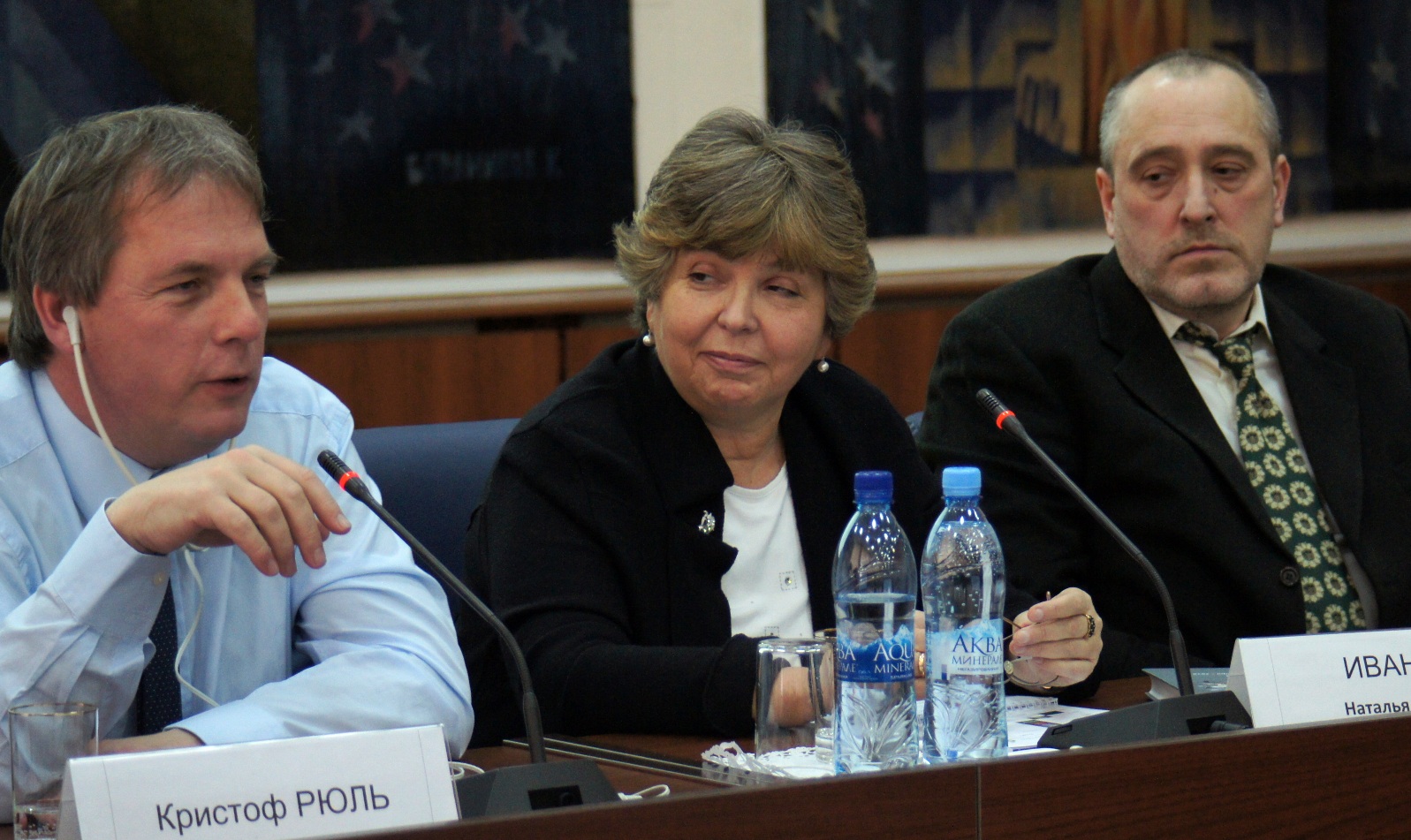
Gazprom’s “Pipeline Policy” in the Black Sea Region  By Greta K. Wagner, Student, University of Glasgow, Intern, The European Geopolitical Forum
By Greta K. Wagner, Student, University of Glasgow, Intern, The European Geopolitical Forum
The Black Sea is often described as a strategic crossroads, which links east-west and north-south transport corridors. Particularly with regard to hydrocarbon resources, the Black Sea serves as a transit route between suppliers in Russia, the Caspian region, Central Asia and the Middle East and consumers in the European Union. Given its strategic importance, the Black Sea is an important puzzle piece for Russia’s “energy superpower” strategy. READ MORE.
- EGF Editor |
Published on EGF: 13.06.2019
| Energy
-
New Southern Gas Corridor Project Will Intensify the Regional Pipeline Race
 By Fuad Shahbazov, Baku-based independent regional security and defence analyst
By Fuad Shahbazov, Baku-based independent regional security and defence analyst
On May 29, Azerbaijan’s President Ilham Aliyev officially inaugurated the first phase of the long-awaited flagship project Southern Gas Corridor (SGC), through which Caspian natural gas from the Shah-Deniz II field will be transported to Europe. The new project consists of several pipeline networks that pass through Georgia and Turkey (via the Trans-Anatolian Pipeline, TANAP) and further through Greece, Albania and Italy (via the Trans-Adriatic Pipeline, TAP). As Shah Deniz Stage 2 is implemented, gas production will increase from 9 to 25 billion cubic meters (bcm) per year. READ MORE
- EGF Editor |
Published on EGF: 03.07.2018
| Energy
-
Launch of the TANAP Pipeline: Implications for the South Caucasus  By Benyamin Poghosyan, PhD, Executive Director, Political Science Association of Armenia
By Benyamin Poghosyan, PhD, Executive Director, Political Science Association of Armenia
On June 12, the official launch ceremony of the TANAP pipeline was held in Turkey. TANAP is the key component of the Southern Gas Corridor, which should bring Azerbaijani gas to Europe, circumventing Russia. At the initial stage, annually 6 billion cubic meters of gas will be supplied to Turkey and another 10 billion through South Eastern Europe mainly to Italy. In later stages, the volume may be increased due to additional gas from the Azerbaijani Shah Deniz field, or potentially involving other gas sources such as Iraq and Turkmenistan. READ MORE
- EGF Editor |
Published on EGF: 27.06.2018
| Energy
-
The Black Sea-Caspian Region in Post-Conflict Energy Security Cooperation Scenarios  By Elkhan Nuriyev, BREC Global Energy Associate, EGF Affiliated Expert
By Elkhan Nuriyev, BREC Global Energy Associate, EGF Affiliated Expert
This opinion piece applies post-conflict scenario planning to the future of the regional energy security cooperation in the Black Sea-Caspian basin and describes collaborative steps that could be taken by all relevant players to think more deeply about promoting the integration of energy markets in this part of the world.
Notwithstanding the most acute unpredictability of the new societies in Eastern Europe, the South Caucasus and Central Asia in the 1990s, the young states simultaneously faced the need for intense capital investments in their energy sectors that could drive economic growth. Since then, both the Black Sea and the Caspian basin alike have become crossroads for increased commerce and economic development as the old Silk Road is revived. READ MORE
- EGF Editor |
Published on EGF: 20.09.2017
| Energy
-
Armenia is pushing hard to overcome isolation  By Benyamin Poghosyan, PhD, Executive Director, Political Science Association of Armenia
By Benyamin Poghosyan, PhD, Executive Director, Political Science Association of Armenia
Long term economic development may play a key role in defining the balance of power between Armenia and Azerbaijan.
Last month has seen Armenia engaging in high level contacts with Iran and Turkmenistan. Armenian President Serzh Sargsyan participated in Iranian President Rouhani's inauguration. During a bilateral meeting between the two presidents perspectives for developing Armenian - Iranian relations were discussed including the possibility to expand the cooperation in the energy sphere. READ MORE
Changing the Geopolitical Paradigm in the Middle East An expert on Middle Eastern geopolitics explains why Russia has taken over the initiative in Syria and what the West is left with.
Russia’s military intervention in Syria has changed the rules of the game and threatens the balance of power in the region, as the strategic importance of the Middle East appears to decline in significance for the United States. READ MORE
- EGF Editorial |
Published on EGF: 01.12.2015
| Energy
-
Despite hopes, Substantial Obstacles Remain for Near-Term Iraqi Gas Exports 
(342 Kb)
George Vlad Niculescu
Following closely after the ground-breaking Turkey-Russia gas export/pipeline MoU announced last week, another agreement was publicized between the Iraqi government and the KRG that could send additional KRG gas to Turkey. Some argue that, if the KRG ramps up and exports significant volumes, it could pose problems for Putin’s new plan. EGF Affiliated Expert Ahmed Mousa Jiyad explains why this is unlikely. READ MORE
- EGF Editorial |
Published on EGF: 09.12.2014
| Energy
-
Romania’s Energy Strategy Options: Current Trends in Eastern Europe’s Natural Gas Markets 
(156 Kb)
by Dr. Radu Dudau, director of the Energy Policy Group Bucharest (EGF Information Partner)
Romania’s most important foreign energy policy project, the Nabucco gas pipeline, collapsed in June 2013 as the rivaling TAP (Trans-Adriatic Pipeline) won the bidding for transporting Azerbaijani gas to the EU. Hence, the Southern Gas Corridor (SGC) will link the Caspian Basin to Southern Italy via Turkey, Greece, Albania, and the Adriatic Sea.
Shah Deniz consortium’s choice was predominantly commercial, yet it came to the detriment of Eastern Europe’s strategic necessities. But, although left with no large scale international project, Romania keeps significant options to improve its energy security on the medium term. This paper reviews Romania’s prospective new sources –internal and external – of primary energy. READ MORE
- EGF Editorial |
Published on EGF: 02.05.2014
| Energy
-
BP Energy Outlook 2030 
Within the framework of the IMEMO’s Oil and Gas Dialog Forum BP's chief economist Christof Rühl presented BP Energy Outlook 2030 to the audience of the Russian academics It was stressed that the outlook’s ‘base case’ reflects a ‘to the best of our knowledge’ assessment of the world’s likely path from today’s vantage point, drawing on expertise both within and outside the company. The outlook highlights the growing role of developing economies in global energy consumption, and the increasing share of non-fossil fuels in global energy supply. It emphasizes the central role markets and well-designed policy can play to meet the dual challenge of solving the energy needs of billions of people who aspire to better lifestyles, and doing so in a way that is sustainable and secure. It also notes the uncertainties attached to any long term projection. The discipline of building a numerical projection sharpens our thinking, but the precise numbers are less important than the underlying story of the challenges we all face and the choices we make in producing and consuming energy. To read the report please click EGF or BP
- EGF Editorial |
Published on EGF: 27.02.2012
| Energy
-
BP Energy Outlook 2030 
(2 Mb)

Within the framework of the IMEMO’s Oil and Gas Dialog Forum BP's chief economist Christof Rühl presented BP Energy Outlook 2030 to the audience of the Russian academics
It was stressed that the outlook’s ‘base case’ reflects a ‘to the best of our knowledge’ assessment of the world’s likely path from today’s vantage point, drawing on expertise both within and outside the company.
The outlook highlights the growing role of developing economies in global energy consumption, and the increasing share of non-fossil fuels in global energy supply. It emphasizes the central role markets and well-designed policy can play to meet the dual challenge of solving the energy needs of billions of people who aspire to better lifestyles, and doing so in a way that is sustainable and secure. It also notes the uncertainties attached to any long term projection. The discipline of building a numerical projection sharpens our thinking, but the precise numbers are less important than the underlying story of the challenges we all face and the choices we make in producing and consuming energy.
To read the report please click EGF or BP
- BP |
Published on EGF: 08.02.2012
| Energy
-
